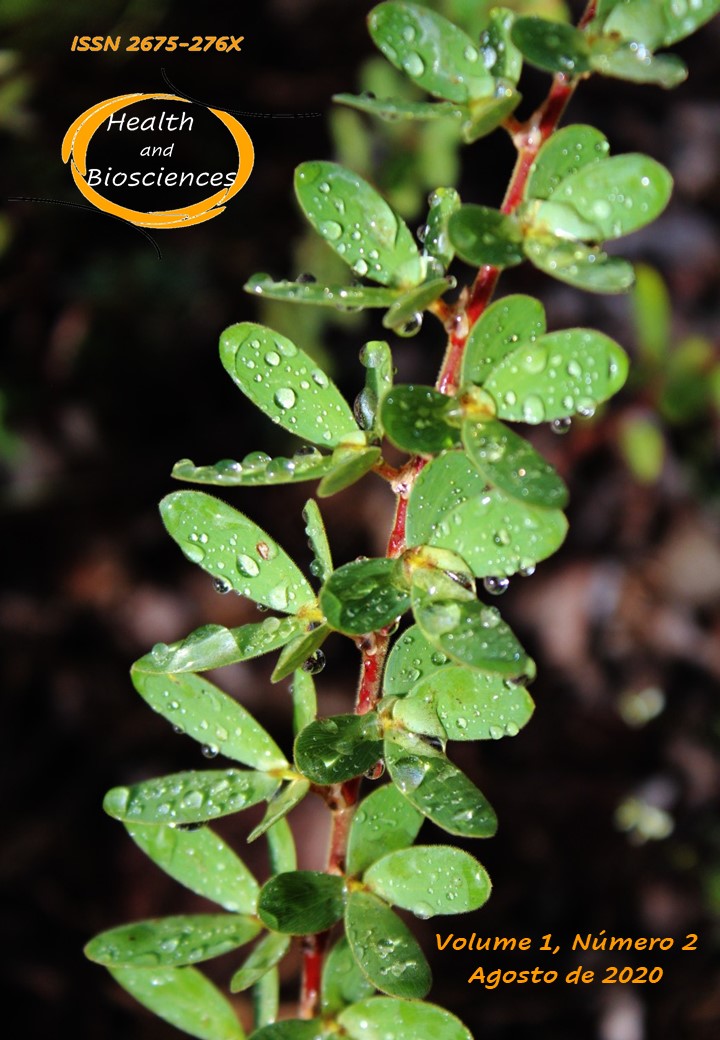Knowledge about cleaning and maintenance of household water reservoirs in one of the oldest municipalities of Brazil
DOI:
https://doi.org/10.47456/hb.v1i2.31410Palavras-chave:
Water Contamination, Household Reservoir, StorageResumo
Much of the population does not have access to treated and piped water in the world, and the users themselves are responsible for its harvesting and storage, collecting from any available source, frequently without treatment, or any kind of protection against contamination. Considering that water can be contaminated during storage in the household reservoir, this study sought to evaluate the knowledge of the population about the maintenance of water reservoirs in São Mateus, one of the oldest cities in Brazil, located in the state of Espírito Santo. The information was collected through an interview with residents of 22 districts of the municipality. It was observed that all interviewees were aware of the need to clean the water tank. However, in 14.29% (n=10) of the households, cleaning was not performed. Regarding the cleaning period of the water tank, 61.43% (n=43) of the residents stated that six months was the correct period for cleaning, with 55.71% (n=39) of the residents effectively performing the cleaning in that period. The obtained data show that the knowledge of the population about the correct maintenance of household reservoirs is still unsatisfactory. This leads to a decrease in the quality of stored water and increases the spread of waterborne diseases.
Downloads
Publicado
Edição
Seção
Licença

Todos os trabalhos publicados na Brazilian Journal of Production Engineering (BJPE) estão licenciados sob a Creative Commons Atribuição 4.0 Internacional (CC BY 4.0).
Isso significa que:
-
Qualquer pessoa pode copiar, distribuir, exibir, adaptar, remixar e até utilizar comercialmente os conteúdos publicados na revista;
-
Desde que sejam atribuídos os devidos créditos aos autores e à BJPE como fonte original;
-
Não é exigida permissão adicional para reutilização, desde que respeitados os termos da licença.
Esta política está em conformidade com os princípios do acesso aberto, promovendo a ampla disseminação do conhecimento científico.

